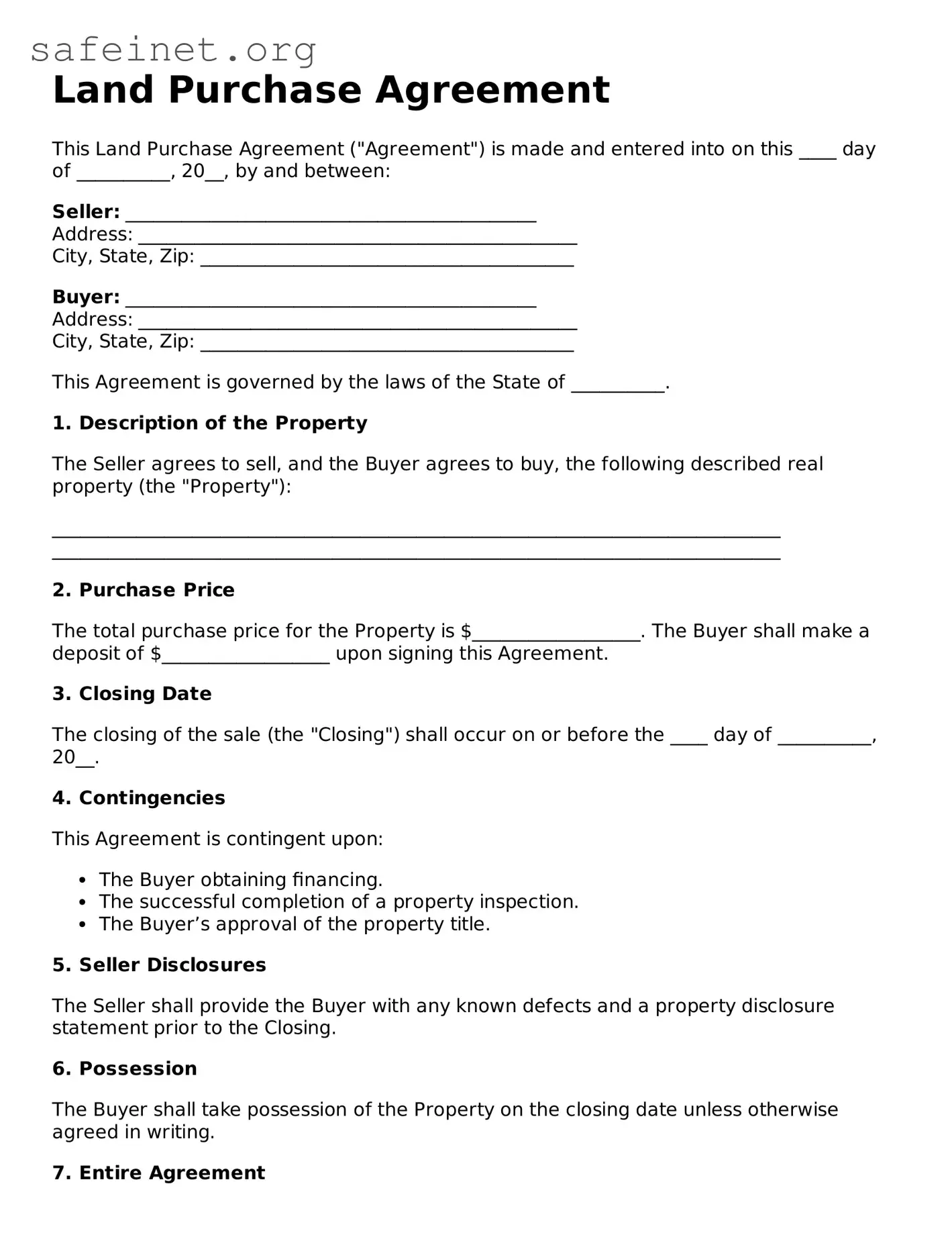Land Purchase Agreement
This Land Purchase Agreement ("Agreement") is made and entered into on this ____ day of __________, 20__, by and between:
Seller: ____________________________________________
Address: _______________________________________________
City, State, Zip: ________________________________________
Buyer: ____________________________________________
Address: _______________________________________________
City, State, Zip: ________________________________________
This Agreement is governed by the laws of the State of __________.
1. Description of the Property
The Seller agrees to sell, and the Buyer agrees to buy, the following described real property (the "Property"):
______________________________________________________________________________
______________________________________________________________________________
2. Purchase Price
The total purchase price for the Property is $__________________. The Buyer shall make a deposit of $__________________ upon signing this Agreement.
3. Closing Date
The closing of the sale (the "Closing") shall occur on or before the ____ day of __________, 20__.
4. Contingencies
This Agreement is contingent upon:
- The Buyer obtaining financing.
- The successful completion of a property inspection.
- The Buyer’s approval of the property title.
5. Seller Disclosures
The Seller shall provide the Buyer with any known defects and a property disclosure statement prior to the Closing.
6. Possession
The Buyer shall take possession of the Property on the closing date unless otherwise agreed in writing.
7. Entire Agreement
This Agreement constitutes the entire understanding between the parties concerning the subject matter hereof and supersedes all prior agreements or negotiations.
IN WITNESS WHEREOF, the parties hereto have executed this Land Purchase Agreement as of the date first above written.
Seller's Signature: _______________________
Date: ________________________
Buyer's Signature: _______________________
Date: ________________________
